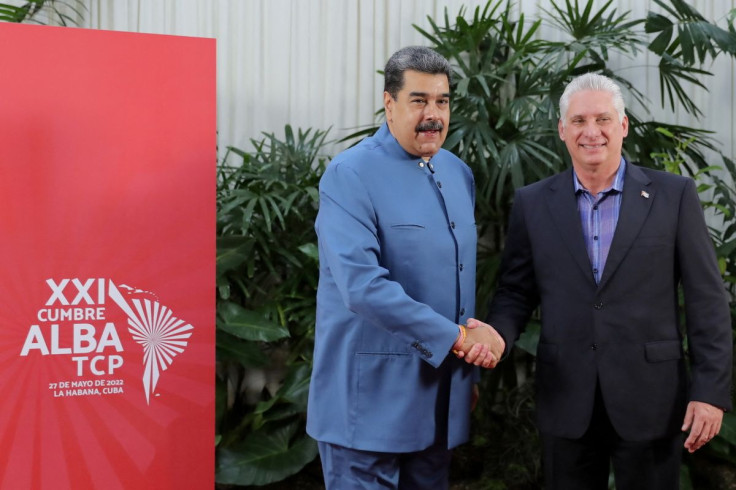U.S. Excludes Leftists From Americas Summit, Mexican Leader Sits Out

The White House on Monday excluded Cuba, Venezuela and Nicaragua from the U.S.-hosted Summit of the Americas this week, prompting Mexico's president to carry out a threat to skip the event because all countries in the Western Hemisphere were not invited.
The boycott by Mexican President Andres Manuel Lopez Obrador and possibly some other leaders could diminish the relevance of the summit in Los Angeles, where the United States aims to address regional migration and economic issues. U.S. President Joe Biden, a Democrat, hopes to repair Latin America relations damaged under his Republican predecessor, Donald Trump, reassert U.S. influence and counter China.
The decision to cut out Cuba, Venezuela and Nicaragua followed weeks of intense deliberations and was due to concerns about human rights and a lack of democracy in the three nations, a senior Biden administration official said on Monday.
Biden aides have been mindful of pressure from Republicans and some of the president's fellow Democrats against appearing soft on America's three main leftist antagonists in Latin America. Miami's large Cuban American community, which favored Trump's harsh policies toward Cuba and Venezuela, is seen as an important voting bloc in Florida in November elections that will decide control of the U.S. Congress.
Lopez Obrador told reporters at a regular news conference on Monday that Foreign Minister Marcelo Ebrard would attend the summit in his place, as he had previously indicated. The Mexican president said he would meet with Biden in Washington next month, which the White House confirmed.
Lopez Obrador's absence raises questions about the significance of summit discussions focused on curbing migration at the U.S. southern border, a priority for Biden, and could be a diplomatic embarrassment for the United States. A caravan of several thousand migrants, many from Venezuela, set off from southern Mexico early Monday aiming to reach the United States.
CUBA CRITICAL
Brazilian President Jair Bolsonaro, a right wing populist and Trump admirer who leads Latin America's most populous country, will attend after initially flirting with staying away. He and Biden have had chilly relations but will meet to discuss a wide range of issues, including food insecurity, climate change and pandemic recovery.
The exclusion of leftist-led Venezuela and Nicaragua had already been flagged in recent weeks. President Miguel Diaz-Canel of Communist-ruled Cuba said last month he would not go even if invited, accusing the United States of "brutal pressure" to make the summit non-inclusive. Cuba attended the past two summits.
Offering Cuba a limited role was seen as a way to placate Lopez Obrador but the idea was rejected, one source said.
In a critical statement on Monday, Cuba called the decision "discriminatory and unacceptable" and said the United States underestimated support in the region for the island nation.
The United States invited several Cuban civil society activists to attend the summit, but many said on social media that Cuban state security had blocked them from travel to Los Angeles to participate.
Having ruled out Venezuelan President Nicolas Maduro, the administration is considering a role for opposition leader Juan Guaido, possibly virtually at a side event, a U.S. official said.
Washington recognizes Guaido as Venezuela's legitimate president, having condemned Maduro's 2018 re-election as a sham.
Also barred from the summit is Nicaraguan President Daniel Ortega, a former Marxist guerrilla who won a fourth consecutive term in November after jailing rivals.
Most leaders have signaled they will attend, but the pushback by leftist-led governments suggests many in Latin American are no longer willing to follow Washington's lead as at times in the past.
White House officials said the invites ruckus will blow over and the summit will be successful no matter who attends.
© Copyright Thomson Reuters {{Year}}. All rights reserved.





















